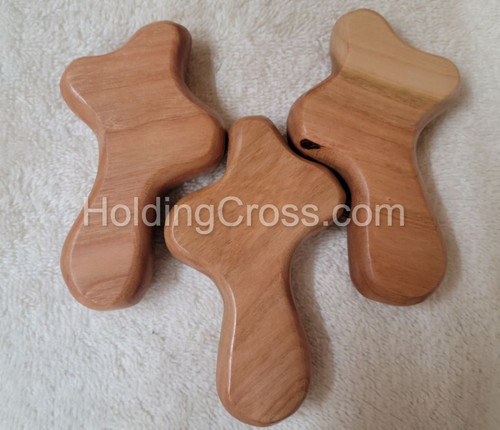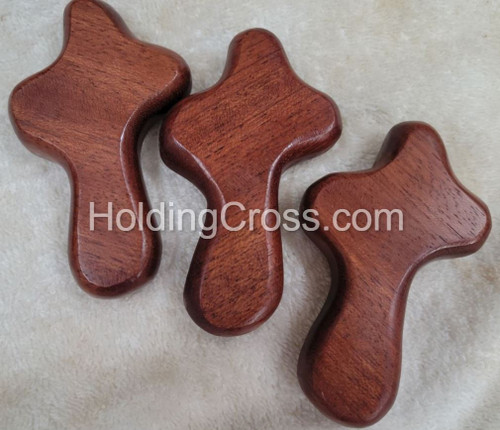A North American hardwood primarily found in central USA. Cherry is unique among the world's cabinet-woods in that it is the only major timber belonging to the Rose family (Rosaceae). Black Cherry is one of the most popular woods we sell. It engraves beautifully (see Engraved HoldingCrosses and look for one that is Black Cherry wood.
This might be of interest to you.
Excerpts below from an article written by Jon Arno in the Fine Woodworking Magazine.
In the lumber trade, cherry logs are where you find them, and being able to find them in sufficient quantities to meet demand seems to wax and wane from generation to generation. Because we rely on nature to replenish the growing stock, and because cherry is not a particularly well-adapted long-term player in the species mix of mature forests, the supply of this wood is cyclical. Once cherry performs its role in nursing fallow land back to its natural forested state, it tends to die out. As a result, the supply of cherry seems to follow times of turmoil in human history: It begins to become plentiful about 80 years or so after large areas of land that have been cleared by logging, devastated by fires, or abandoned as farms are allowed to naturally reforest. For example, it has been suggested that the ample supplies of cherry we enjoyed during the mid- to late 20th century were in part the result of the Civil War, which caused large numbers of farms to go fallow when so many soldiers failed to return to work the land.
There is no doubt that Pennsylvania has produced large quantities of outstanding cherry lumber, and its diminished reserves of this species now seriously affect our supply. However, I suspect the more uniform maturity of Pennsylvania's once plentiful stands, rather than geography, has played the greater role in establishing the mystique surrounding its superior cherry. Given the time to pack the heartwood with an unusually abundant amount of pigment-forming extractives would cause old-growth cherry trees to produce wood with a deeper color. Also, the more leisurely growth rate of fully mature trees would yield stock with a finer, more complex figure. Let's see now, the Civil War ended in 1865...so, by about 1950 those Pennsylvania cherry trees would have been coming into their prime, wouldn't they? Nah, it's probably just a coincidence.
Isn't it amazing how our God can take a devastating event, even a human caused event like war, and use his creation in nature to heal our land!
As with all of our crosses, there were no stains, lacquers or preservatives used to finish your cross; only a natural oil which is hand-rubbed and polished to enhance the woods natural beauty. When you hold our crosses, you are “feeling” the wood and “seeing” the wood as God created it. No two are alike as boards will vary in color and graining due the environmental conditions it was produced. The shine on the cross is related to the amount of “resin” in the make-up of the wood itself. The more resin the higher the shine.
Crosses are handcrafted in our Palestine, Texas (USA) facility offering the highest quality. Crosses do not require polishing. Holding your cross will allow the oils from your hands to go into the wood and create a soft, patina glow. Never use oil or olive oil on our crosses.
Price noted is for 1 HoldingCross. The picture of multiple crosses is to share with you the diversity of the wood.
Each cross comes in an organza bag with a StoryTag telling the name of the wood and a StoryScroll which contains suggested prayers, CareGiving stories and other information. We do not offer seconds or damaged crosses. Our crosses are all first quality and handcrafted in our shop by our family.
NOTE : The HoldingCross watermark in the picture does not appear on the crosses. The picture is marked for proprietary reasons.
2 Reviews Hide Reviews Show Reviews
-
Beautiful!
The quality of this cross is amazing. Love the feel and the weight of the wood, and it sits so comfortably in the hand.
-
Cherry Wood Cross
I thought Black Cherry would be black in color but it's not! So smooth and comforting.







